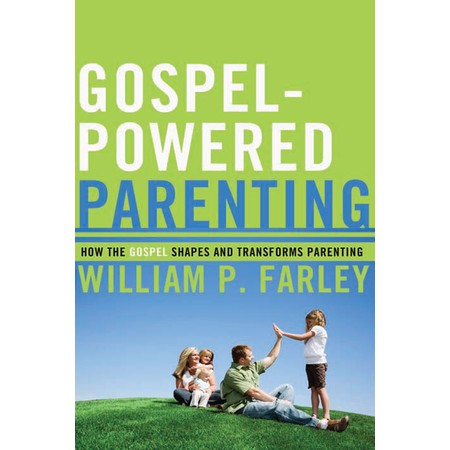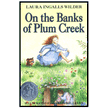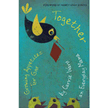I have to admit that I didn’t think this post would be all that interesting. Most of the time when I mention that I homeschool, people smile and nod, but rarely do they ask the hard questions that I know are really going through their brain. If they are interested in homeschooling themselves, they may ask questions, but these are interest driven questions, not ones that may threaten me. Oh, sure homeschoolers all learn the “answers” to the typical hard questions, but I frankly get tired of the standard answers. The typical responses tend to treat these questions like they are coming from a hostile “outsider” not a caring, inquisitive person who might be my friend or my relative, who is supportive of me, but just doesn’t “get” why I would do this, and might be afraid to ask because they don’t want to offend me. So I wasn’t planning on answering the typical questions. Then I posted to Facebook a request for questions that people would like to ask me. (Facebook tends to give people the freedom to ask questions they might not otherwise ask, but would really like to know.) In fact, this post has already generated more feedback than all my other 25 blog posts so far - even before it was written! The questions I received were great and really caused me to think not only about my response, but how I would specifically respond to the person who asked them. These are not nameless, faceless questions, they come from friends who I love and respect, so I will do my best to answer them with love and respect. I haven’t changed the questions at all, I just copied them over from my Facebook page. (This is MUCH longer than a typical blog post, so feel free to scroll to the questions that most interest you!)
Here goes:
1. Why are you choosing to homeschool your kids?
There is a long list of reasons why we homeschool: flexible school schedules, time, alternative curriculum methods, customized education, one-on-one instruction, worldview development, social environment, family bonding, spiritual instruction, and because we love it!
2. What's wrong with the public school system?
That is a loaded question! Let me answer that with what I think is RIGHT with the public school system. They have some of the most dedicated teachers I know, who do a very difficult job with very little credit and even less pay. They work hard to get better at what they do and give as much attention to each individual student as they can. I greatly respect them. I would not want to do what they do. My father-in-law, grandmother-in-law, pastor’s wife, college roommate, cousin and one of my mentors are all (or have been) public school teachers. Our choice to homeschool definitely should not be seen as a slight to these people who have spent a lot of hard work to be good at what they do. At the same time, all these people also would admit that not all the teachers are equally dedicated, and more importantly – the system that they work under frequently hinders them from doing the work that they would like to do. That’s as far as I will go with that one!
3. How will you "do" high school?
Well, I haven’t committed to high school yet… I like to think that we take things one year at a time. Although, that is not entirely true. We assess what we are doing every year, but we do like to think long term about where we are going and how we will prepare them for future grades, whether we are doing the schooling at home or not. If we do homeschool through high school, there are some really incredible resources to make sure that our kids get college prep experience in all sorts of subjects, regardless of my capability to teach all of those subjects. High school, as I understand it, begins to become more of a preparation for life than even a “normal” high school can be, because I can seek out subject experts to tutor the kids in math or chemistry or writing, I can provide internships in areas of interest and skill (because they have time for that) and we can also enroll in community college courses so that it is possible to use high school time to get a leg up on college core requirements. The possibilities for creating experiences that really support the boys’ strengths and interests is pretty exciting (but I won’t think about it too much yet….)
4. What about socialization and dealing with the "real world" as opposed to an artificial, insular, over protective environment?
Any homeschooler will tell you that socialization is their biggest question. There are some social experiences that are helpful, some that are harmful and some that are neutral. If we are talking about helpful social experiences such as making friends, playing sports, meeting people who are different than you, these are all things that homeschoolers get in abundance and with people from all different age groups (babies to senior citizens)! If we are talking about harmful social experiences, homeschoolers can be protected from the over-abundance of these experiences, or they can experience them within a safe environment and with the guidance of parents who can help to frame these things in ways that turn them into learning and growing experiences. (Public school parents can do this too, but more things can slip through the cracks, especially as the kids get older. At least that is how it worked when I was in public school.) Some social experiences are neutral… I’m pretty sure my kids understand how to stand in line, how to eat their lunch quickly if they need to, how to raise their hand to ask a question. (I’m not being snarky about these things… they are honestly things people have mentioned to me as important social aspects that my kids might be missing!) My kids have non-homeschooling friends from church, neighborhood and sports. They hear words they shouldn’t hear. They have been exposed to different lifestyles and even to outright evil that I wish I could have protected them from more. How and when we expose our kids to the “world” is a matter of wisdom and prayer. I agree that homeschool should definitely be a place of preparation for mission in the world, and not just separation from it.
5. How do you decide on curriculum?
I research homeschool websites and curriculum providers, I ask friends what has worked for them, I read books on educational methods and learning styles, I try things and assess how they work, I ask more questions, do more research, wash rinse repeat. I really enjoy it actually!
6. How do you stay one step ahead to keep them occupied?
This is what seems really hard to imagine from the outside looking in. It can be tough, but the kids and I start to get into a routine of what is expected during certain times of the day. For the youngest, I provide plenty of coloring books, puzzles, picture books, Legos and short learning activities. When they were toddlers, they had “school boxes” that had different activities they could only do during school time and that kept them busy.
7. What is the most difficult and/or frustrating aspect of homeschooling your sons?
ME! It is hard to realize that you are your kids’ primary role model and yet to realize how often you fail at that every day. Parenting itself is one of God’s best tools for sanctifying us (making us more like Him), and the more hours a day you are at it, the more you feel it! I cannot make my children good, smart, successful, moral, or even Christian – but I really want to! So I am the most frustrating thing… when I am trusting in myself. I daily have to cling to the cross and realize the depth of my need, OUR need – but that is a fight of faith, for sure!
8. What can a spouse (in the supporting role) of a homeschooling parent do that is the most help?
I think the most helpful thing a spouse in the supporting role can do is to be the champion of the family vision. I don’t think that homeschooling would work if my husband wasn’t fully on board with the reasons, benefits and value of what we are doing. He carries the vision when I am discouraged, and at the same time, he also helps me to evaluate (non-emotionally) if it is time to make a change. Especially in a family of boys, if Dad is not all in, you will soon have a bunch of “momma’s boys” and I don’t mean that in a good way. The more Dad is involved with not only discipline but with direction, vision, and especially spiritual leadership, the more successful homeschooling will be. Wait. The more successful FAMILY LIFE will be… regardless of school choice.
9. Where do you see deficiencies that could be worked on to make things run more smoothly?
Time management. Anyone with help for that one, I’m right here waiting. I mean, I’m not just waiting, I’m using my time wisely while I wait. Kind of.
10.When everything is all boiled down, what is the number one, most important reason you homeschool?
I asked this question to my family to see what they would all say. Much to my dismay, the kids all came up with an answer that revealed what I have (obviously) spent entirely too much time talking about. It was actually really helpful for me to see what things get conveyed to the kids when we talk around the dinner table about why we do the things that we do. This is true in all kinds of areas… ask your kids why they think you go to church, or why you vote for the candidate you vote for… you might be surprised to see what things they hear you emphasizing, even if it is not what you think you are emphasizing. (This could be a whole other blog post.)
The REAL answer, and the one that I will make sure my kids understand over and above all other reasons is…
Homeschooling gives us the greatest quantity of time with which to teach our sons about the great God who reveals himself through creation and through history and most of all through his Son, who lived and died in our place, while we were still hostile towards him, to reconcile us to God and give us unspeakable joy in His presence for eternity. Should God be pleased to open their eyes and grant them new birth through faith, we will be thrilled to be able to walk alongside them and disciple them as we follow Christ together, for His glory and for the magnifying of His name.
Thanks for all your questions… and for making it to the end of this blog post!
I love getting your comments, and you have earned a little talking time of your own after reading this whole post, so have at it!!
















